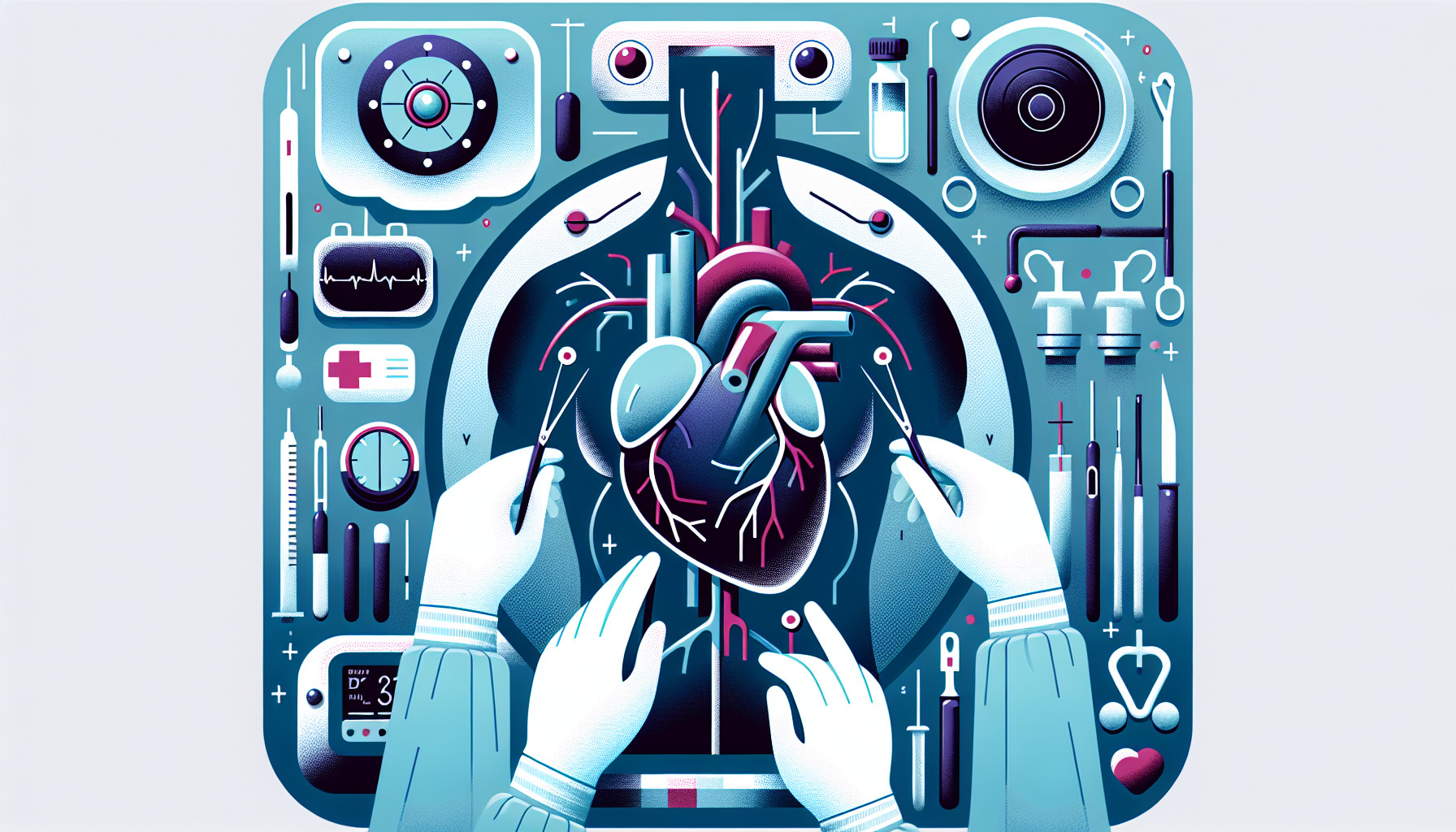Our Summary
This research paper discusses the issue of stroke occurring after heart surgery, a rare but serious complication. The way these strokes present themselves can vary greatly and depend on a range of factors that can be hard to pin down. The paper suggests that certain parameters in CT scans, specifically something called visual rating scales (like age-related changes in white matter in the brain and a score called the Mendes Ribero visual rating scale), could be helpful in predicting how a patient might recover from a post-surgery stroke. These scales can be easily used in everyday medical practice. However, it’s still necessary to conduct more research to validate these scores and find a specific “cut-off” point that could indicate the likelihood of a patient’s neurological recovery after a stroke.
FAQs
- What is postoperative stroke in the context of coronary artery bypass surgery?
- How can computed tomography scan parameters predict postoperative stroke recovery after bypass surgery?
- What further research is needed to validate the use of visual rating scale scores in predicting postoperative stroke reconvalescence?
Doctor’s Tip
One helpful tip a doctor might tell a patient about coronary artery bypass is to closely follow postoperative care instructions, including taking prescribed medications, attending follow-up appointments, and participating in cardiac rehabilitation. It is also important to maintain a healthy lifestyle, including regular exercise and a balanced diet, to reduce the risk of future heart problems. Additionally, being aware of the signs and symptoms of a stroke and seeking immediate medical attention if they occur can help prevent serious complications.
Suitable For
Patients who are typically recommended for coronary artery bypass surgery are those with severe coronary artery disease that is not manageable with medication or other less invasive treatments. These patients may have symptoms such as chest pain (angina), shortness of breath, or fatigue, or they may have had a heart attack. Additionally, patients with multiple blockages in their coronary arteries, left main coronary artery disease, or diabetes may also be candidates for coronary artery bypass surgery.
Timeline
- Before coronary artery bypass surgery:
- Patient is diagnosed with coronary artery disease and undergoes various diagnostic tests to assess the severity of the blockages in the coronary arteries.
- Patient may undergo lifestyle changes, medications, or other treatments to manage their symptoms and improve their heart health.
- If deemed necessary, patient is scheduled for coronary artery bypass surgery, which involves creating new routes for blood to flow around the blocked arteries.
- After coronary artery bypass surgery:
- Patient is closely monitored in the intensive care unit immediately after surgery to ensure proper healing and recovery.
- Patient may experience pain, fatigue, and discomfort in the days following surgery as they begin the recovery process.
- Patient undergoes cardiac rehabilitation to improve their physical strength and cardiovascular health.
- Patient may be prescribed medications to manage pain, prevent infection, and reduce the risk of complications.
- Patient follows up with their healthcare provider regularly to monitor their progress and make any necessary adjustments to their treatment plan.
What to Ask Your Doctor
- What are the benefits and risks of coronary artery bypass surgery for my specific condition?
- What is the expected recovery time after coronary artery bypass surgery?
- What medications will I need to take after the surgery, and for how long?
- What lifestyle changes will I need to make after the surgery to reduce the risk of complications?
- How often will I need to follow up with you after the surgery?
- What are the signs and symptoms of a postoperative stroke that I should watch for?
- How can I reduce my risk of developing a postoperative stroke?
- What imaging tests or other diagnostic tools will be used to monitor my recovery and detect any potential complications?
- Are there any specific factors or conditions that may increase my risk of developing a postoperative stroke?
- What is the likelihood of experiencing a postoperative stroke, and what are the potential long-term effects?
Reference
Authors: Celmeta B, Miceli A. Journal: J Card Surg. 2022 Oct;37(10):3148-3150. doi: 10.1111/jocs.16798. Epub 2022 Jul 29. PMID: 35904216
